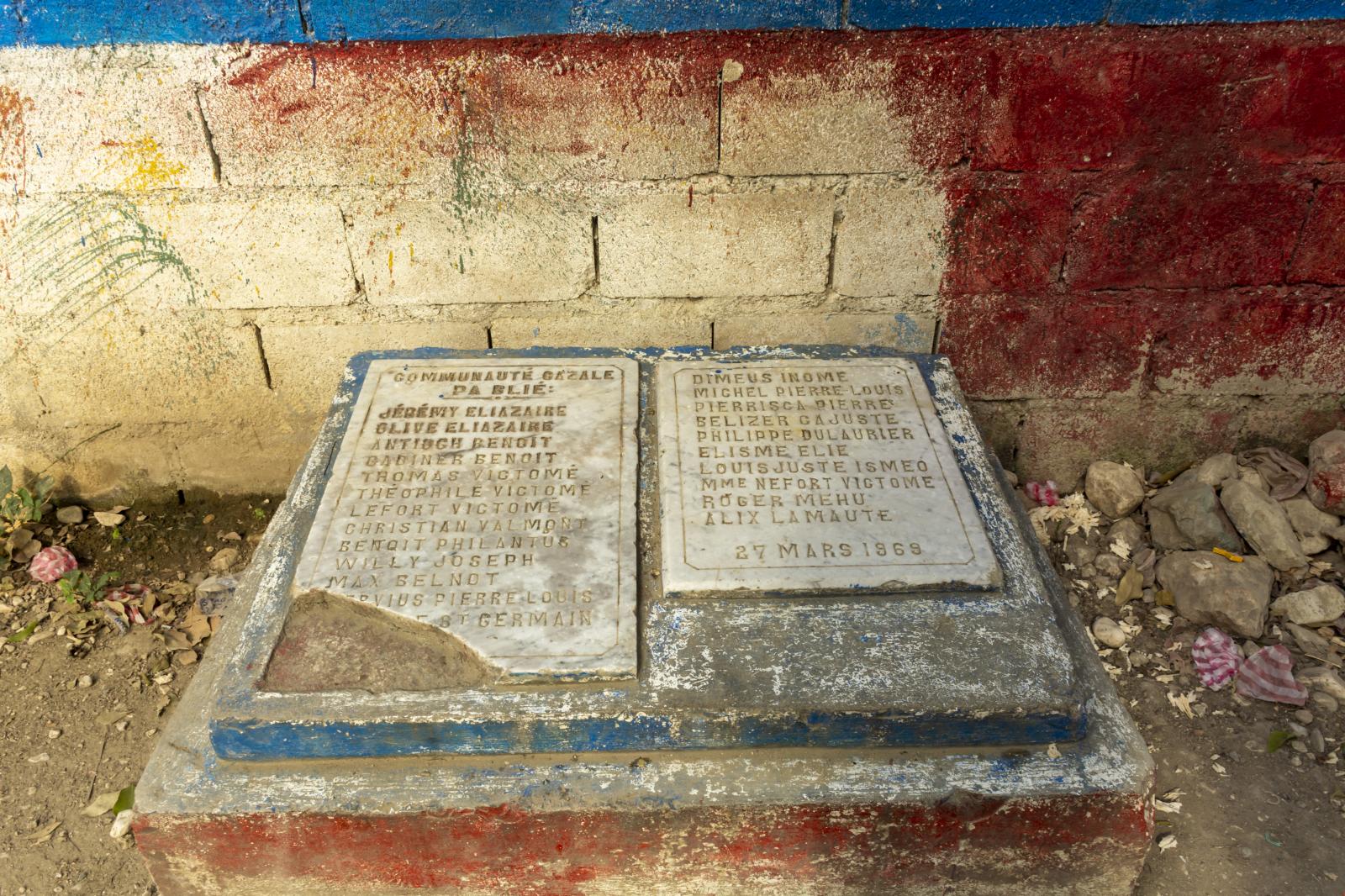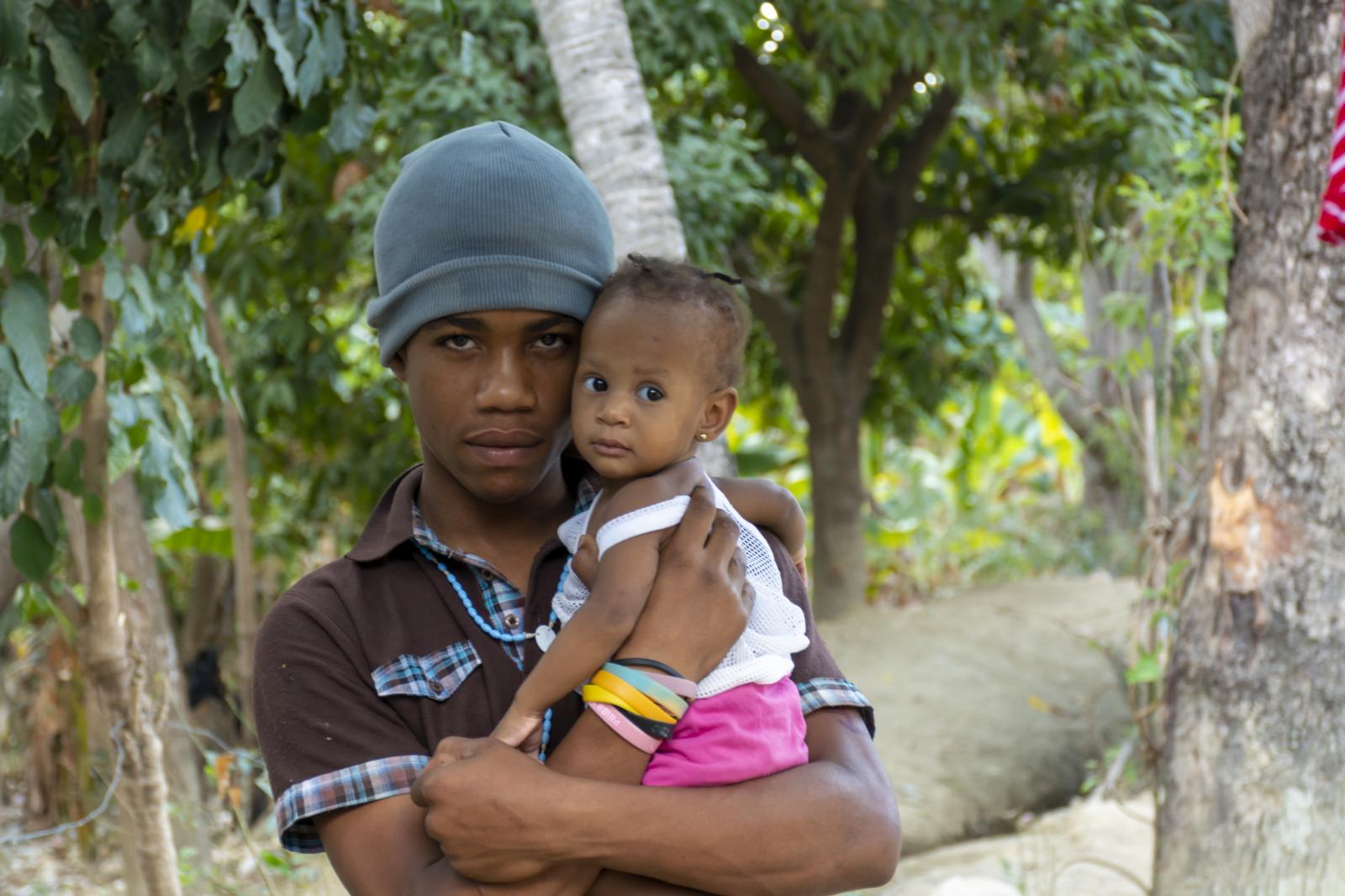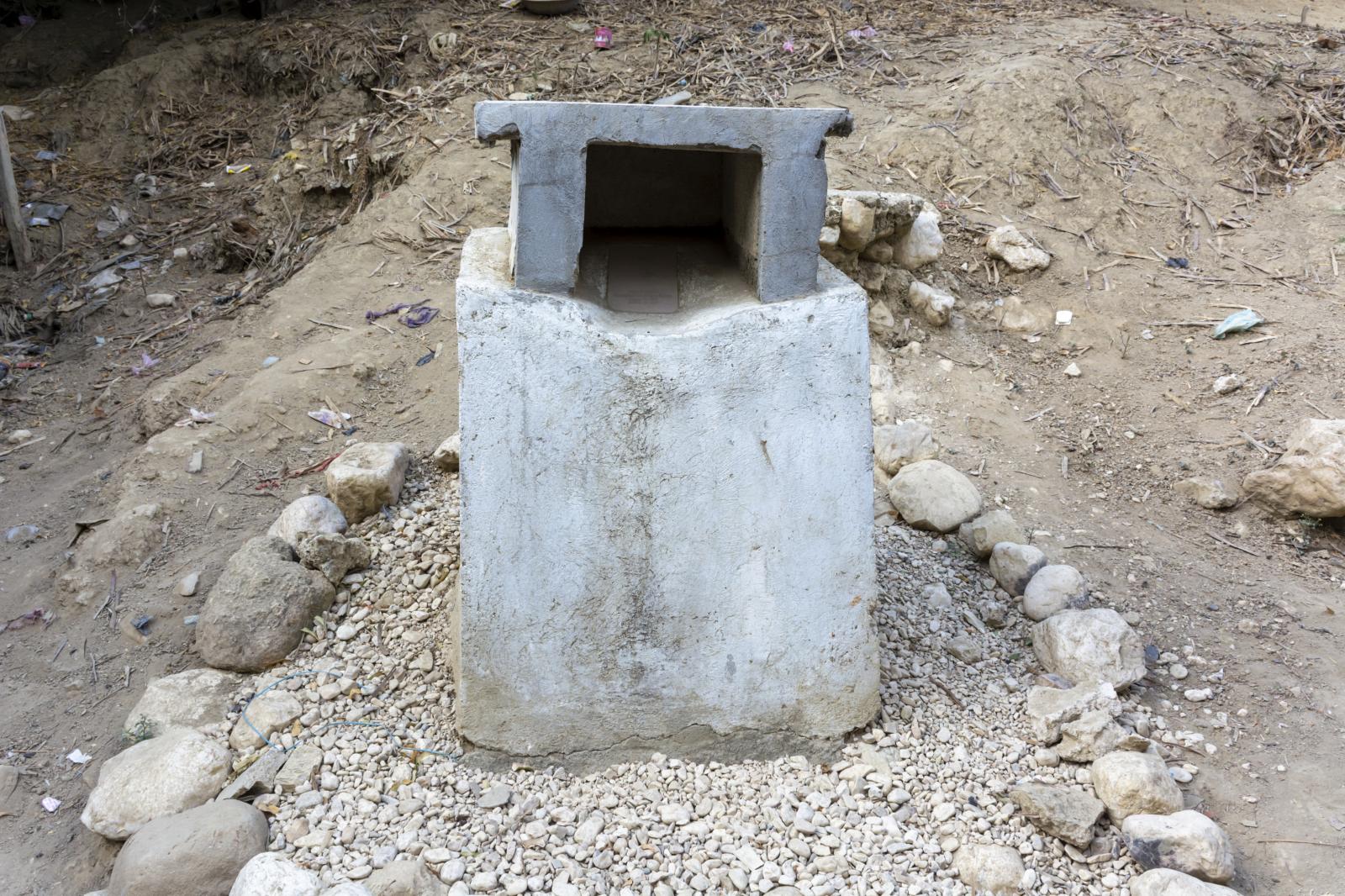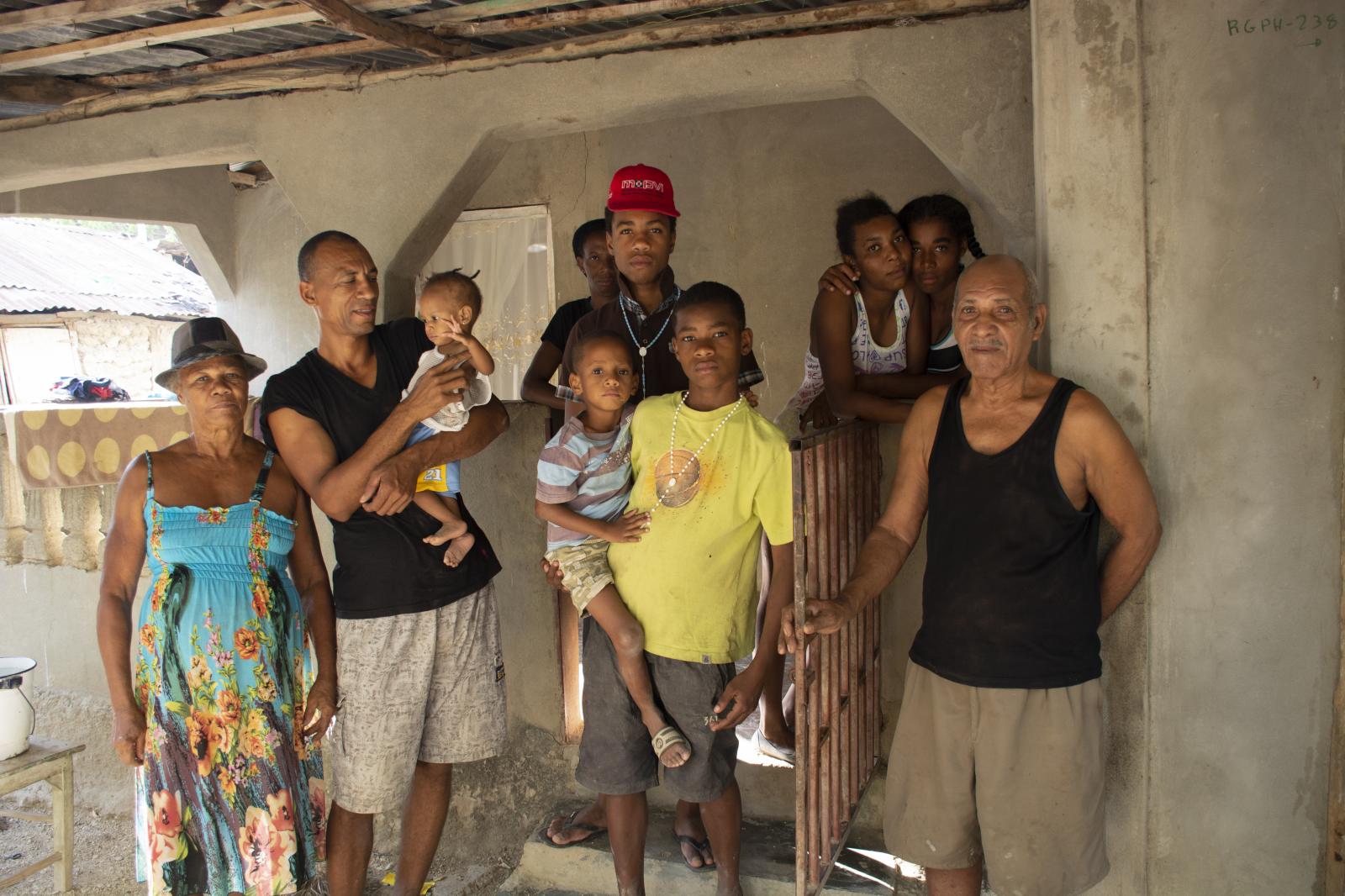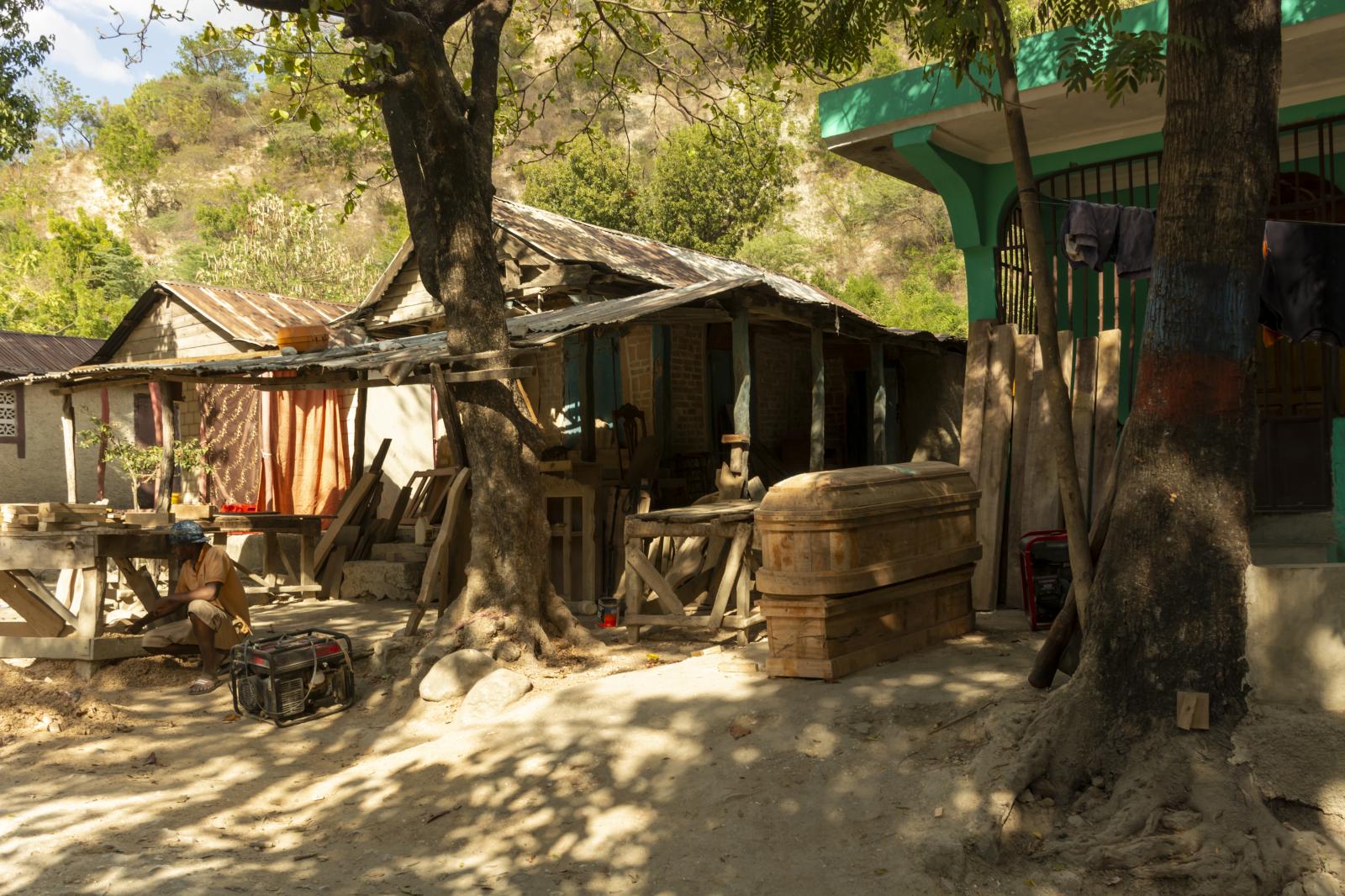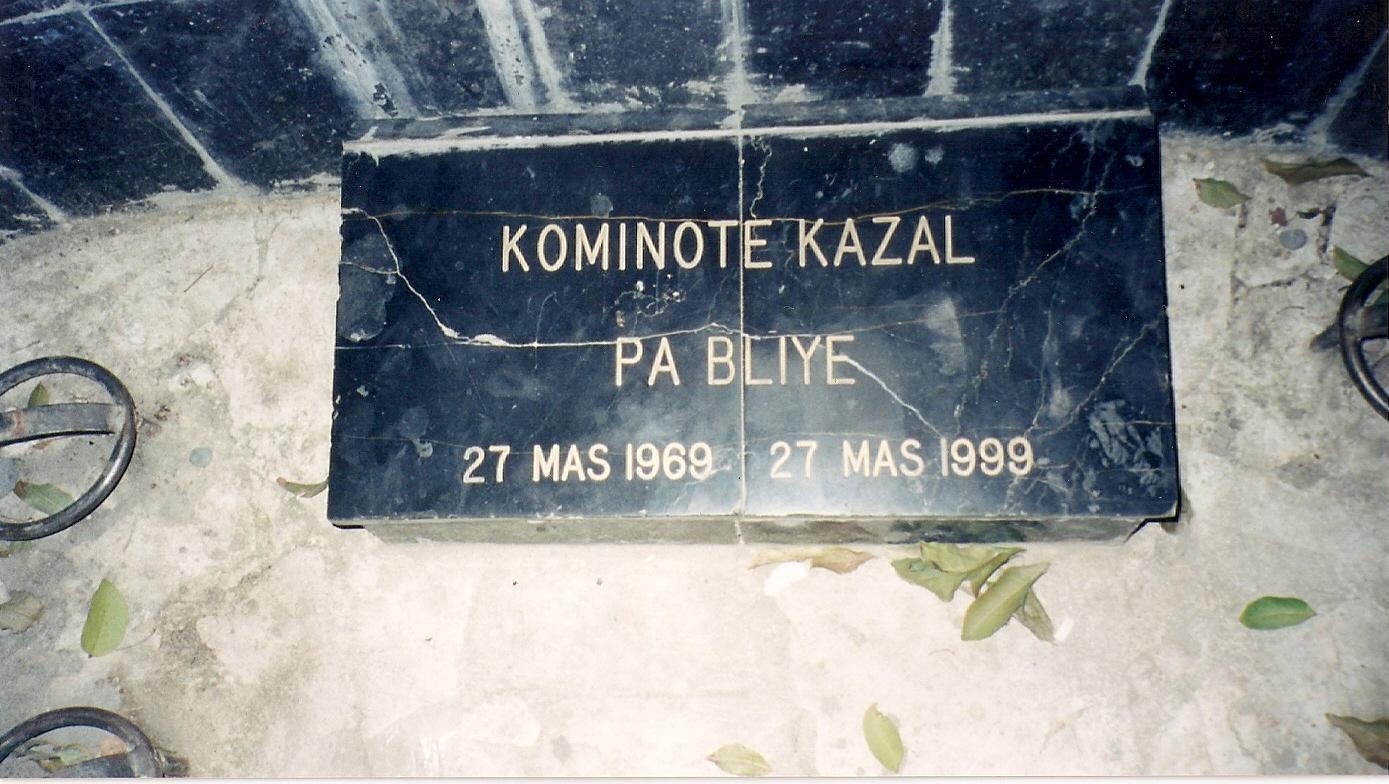News
Kazal, Haiti as Memory
sokari ekine
Jul 20, 2020
The majority of the people of Kazal are descendants of Polish soldiers brought to Haiti to fight for Napoleon's army. Many refused and rather chose to join the Haitian revolutionaries. Most of the 5,000 plus Polish soldiers died and the people of Kazal are the descendants of those who survived and who were given Haitian citizenship by Haiti's first president, Jean-Jacques Dessalines in 1804. Narratives of the Polish descendants in Haiti emphasize the European but the Lakou of Yayoute shown in these photos contradicted this in their own personal reality by immediately recognizing the African. For a few moments we became joined through the passage of time and space, together in historical reality, the memory a mix of presence and absence. Yayoute and I were both parts of an archive of living visible bodies as well as dead invisible bodies, those who did not survive the crossing.
A second more recent memory is that of the memorial to the people of Kazal who were murdered by François [Papa Doc] Duvalier - a memory of death and collective pain. It is pointless to ask why because terror does not come with reasoning!
On the 5th April 1969, in the village of Kazal, some 500 Haitian soldiers and macoutes [death squads] arrived in the town and began to main and kill. 25 people were killed, many injured and a further 80 people disappeared, never to be found; houses and property were burnt and looted and women raped. The crime of Cazale was to refuse to pay agricultural taxes. The macoutes were also looking for members of the communist party who had hidden in the town.
Kazal is a representation of Haitian memory having direct descendency from West and Central Africa and Europe to the land of the Taino people.
5,718

